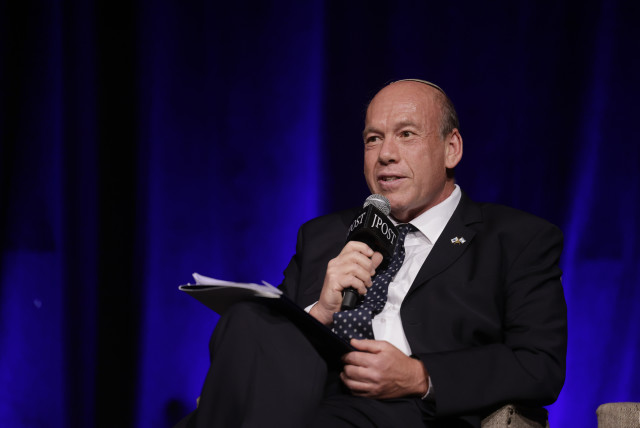Financial stability an elusive goal for Israel's soccer clubs, despite being most popular sport

Audit of country's No. 1 sport reveals many troubling realities regarding player salaries, mismanagement and overall lack of regulation and enforcement.
Soccer is the world’s most beloved sport, cherished by billions globally including in Israel, and it stands as a symbol of unity, sportsmanship and healthy competition. Yet, behind the glory of the game lies a complex web of financial intricacies, particularly concerning the stability of clubs at the local and national levels.
In Israel, where approximately 46,000 players engage in various leagues from youth to professional, the Israel Football Association (IFA) holds the mantle of responsibility for regulating this vital sector.
The financial underpinning of a soccer club is akin to a delicate house of cards, with player salaries representing a significant portion of its expenditures. The precarious financial state of a club can lead to dire consequences, from tarnishing the sport's reputation to causing distress among players, staff, and fans alike. In response to these challenges, the IFA established the Authority for Budget Control in 1992, aiming to safeguard the financial stability of soccer clubs across the country in both the top-tier Premier League and second-tier National League.
However, the most recent report by the State Comptroller's Office has cast a shadow over the effectiveness of the Authority's oversight. Delving into the financial reports spanning four seasons (2019-23), the recent audit reveals a disheartening reality. Despite the Authority's mandate to ensure financial stability, the aggregate negative equity of clubs in the professional leagues has surged, signaling a failure to achieve its intended goal.
The State Comptroller's audit highlights areas of concern in player salaries
The audit, released for publication on Tuesday via the State Comptroller's report, highlights various areas of concern, ranging from the handling of player salaries to the absence of mechanisms to address complaints regarding payment delays. The report also reveals multiple instances of financial mismanagement and lack of proactive measures to curb irregularities, such as double contracts.
The previous report in 2001 indicated that by the end of 1999, the aggregate negative equity of 36 teams in the professional leagues amounted to approximately NIS 162 million (approximately NIS 237 million in "today's money" as of May 2023). Over the 22 years from the 1999/2000 season through the 2022/23 season, the deficit in equity of the teams in both professional leagues has not decreased but rather increased from NIS 237 million to NIS 281 million (an 18.5% increase). Additionally, 19 out of 28 teams have negative equity, totaling approximately ILS 326 million.
According to the financial reports of the Premier League clubs, the loss in the 2019/20 season was 22%, while in the 2022/23 season, there was a surplus of 4%. However, the net loss of seven losing teams amounted to approximately ILS 49 million (representing 16% of their revenues). The turnaround between the 2021/22 season and the 2022/23 season was due, among other factors, to significant one-time revenues totaling tens of millions of shekels from two clubs (one of which recognized extraordinary income for the deletion of shareholder debt).
A focused audit was also conducted on player and staff salaries. The annual base salary of 46% of players in the Premier League and the National League for the 2022/23 season was up to NIS 100,000 (for 10 months of work). Comparatively, the average monthly salary in 2022 was approximately NIS 37,000 in the Premier League and NIS 10,300 in the National League. There were also several claims from the players' union of occasional delays in salary payments by some clubs in the National League. During the 2022/23 season, seven out of 16 National League clubs experienced delays in player salary payments, sometimes lasting several months.
Moreover, the relationship between the IFA and the Authority for Budget Control appears fraught with shortcomings. The absence of regulatory oversight regarding the tenure of the Authority's chairman and the dearth of internal audits since its inception raises questions about accountability and transparency within the organization.
Other issues raised in the audit included financial reporting and enforcement problems, the improper monitoring of youth program budgets, and a troubling history of failing to learn from past experiences regarding financially troubled clubs. To wit, although one club went bankrupt in the 2021/22 season and four others faced significant financial difficulties, the IFA did not implement structured procedures to prevent future occurrences.
In light of these findings, the report presented a series of recommendations aimed at revitalizing the financial landscape of Israeli soccer. Drawing inspiration from international standards set by UEFA, suggestions include incentivizing clubs to bolster their financial resilience and establishing robust mechanisms to safeguard the integrity of youth development funds.
The road ahead for Israeli soccer is fraught with challenges, yet imbued with opportunities for reform and renewal. As the various stakeholders ponder the path forward, the enduring spirit of the game remains a beacon of hope, driving efforts to ensure a brighter future for generations of players, fans, and communities across the nation.
Jerusalem Post Store
`; document.getElementById("linkPremium").innerHTML = cont; var divWithLink = document.getElementById("premium-link"); if (divWithLink !== null && divWithLink !== 'undefined') { divWithLink.style.border = "solid 1px #cb0f3e"; divWithLink.style.textAlign = "center"; divWithLink.style.marginBottom = "15px"; divWithLink.style.marginTop = "15px"; divWithLink.style.width = "100%"; divWithLink.style.backgroundColor = "#122952"; divWithLink.style.color = "#ffffff"; divWithLink.style.lineHeight = "1.5"; } } (function (v, i) { });

